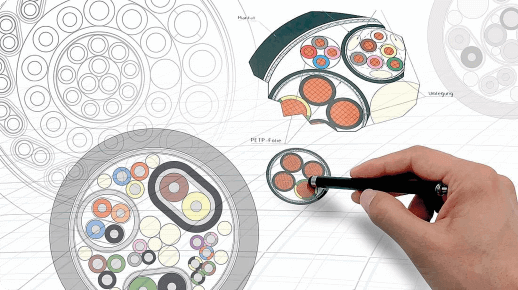Underground Distribution Cable – UD Cablesolves the spatial limitations and reliability issues of urban power transmission through its multi-layer protection structure and underground laying method, becoming the core infrastructure for modern power grid upgrades and smart city construction.
Conductor material: Copper or aluminum core
Multi-layer insulation protection: Cross-linked polyethylene (XLPE) or polyethylene (PE)
Temperature range: 75°C (PE) to 90°C (XLPE)
Shielding layer design: Some high-voltage cables contain a semi-conductive shielding layer
Sheath and protection:Moisture-proof and pressure-resistant: The outer sheath is mostly polyvinyl
chloride (PVC) or high-density polyethylene (HDPE).
Armor enhancement: In areas susceptible to external damage (such as under urban roads), steel belts or
steel wire armor can be added to improve impact resistance.
Laying supporting facilities: It is necessary to combine cable trenches, cable tunnels or pre-buried
pipeline systems to ensure that the cable runs in a safe environment.
Urban power network
Used in urban medium and low voltage distribution systems (0.6/1kV to 35kV), transmitting electricity
from substations to commercial areas, residential areas and industrial user terminals.
High reliability power supply scenario
Applicable to areas with high requirements for power supply stability (such as data centers and
hospitals), avoiding power outages caused by severe weather (typhoons, ice and snow) or traffic
accidents.
Residential distribution (URD system)
As the core component of the underground residential distribution system (Underground Residential
Distribution), it is directly buried underground in the community and connects the transformer to the
user's meter box.
Environmentally sensitive areas
In ecological protection areas or areas with high electromagnetic interference sensitivity (such as
airports and laboratories), UD Cable can reduce electromagnetic radiation and ecological damage.

Our professional team will reply you as soon as possible.